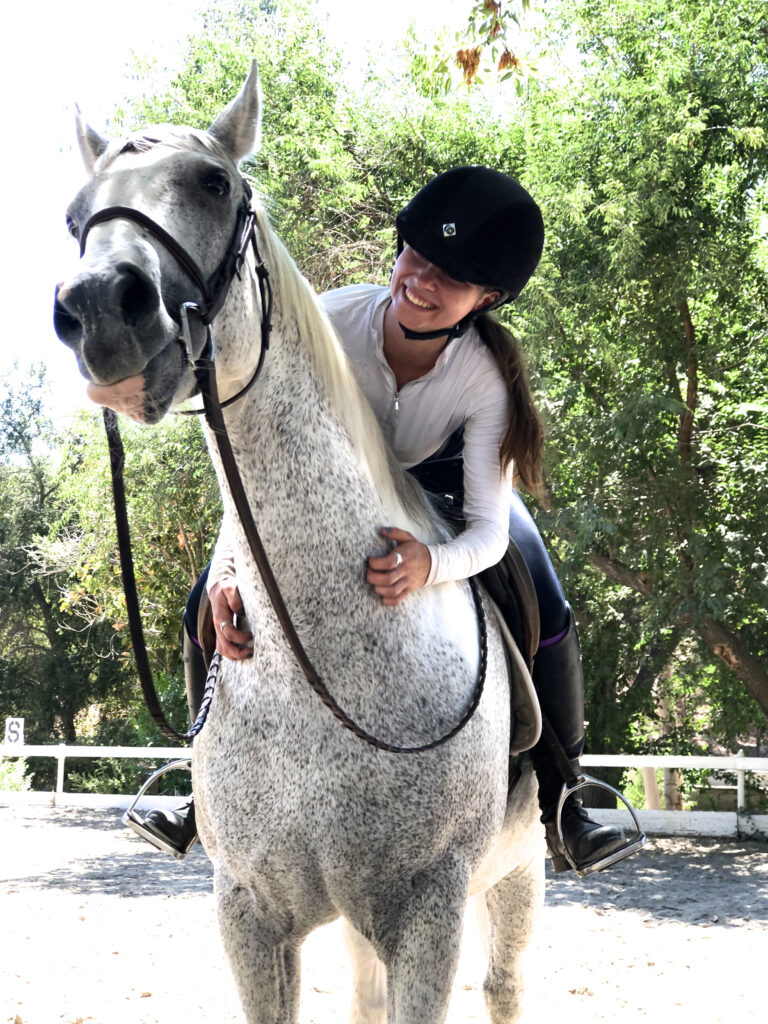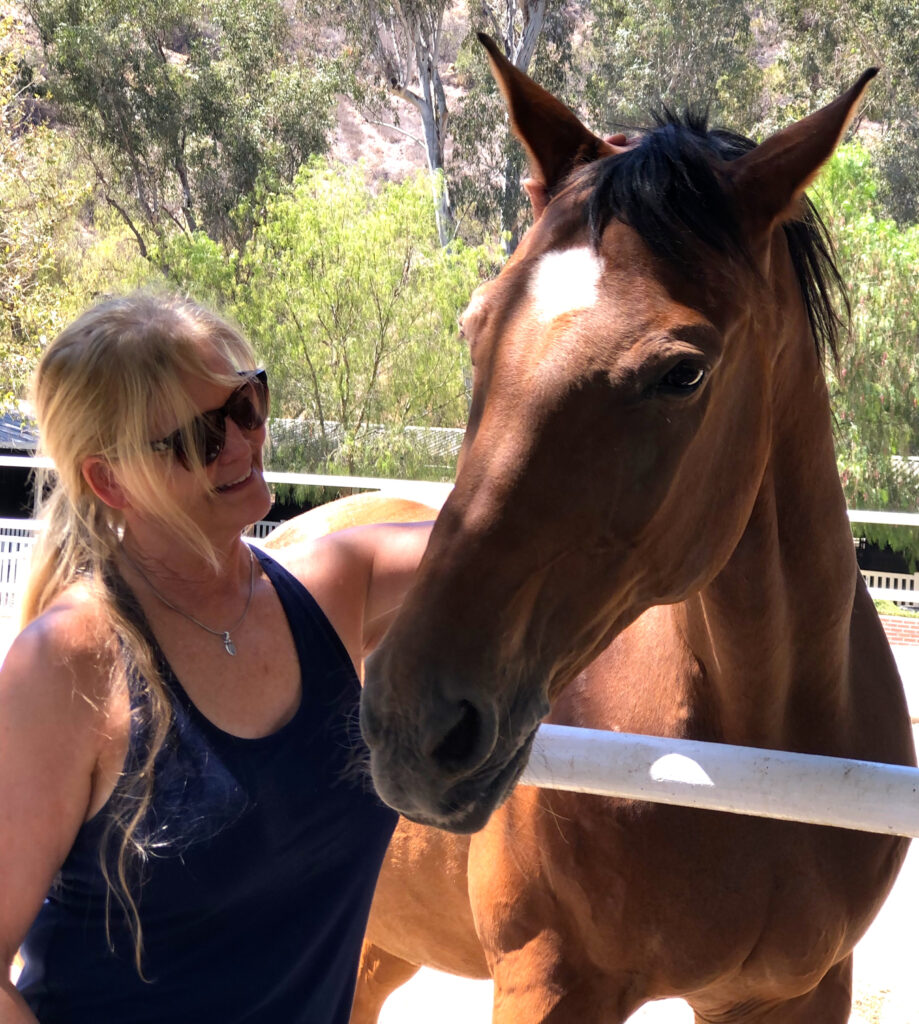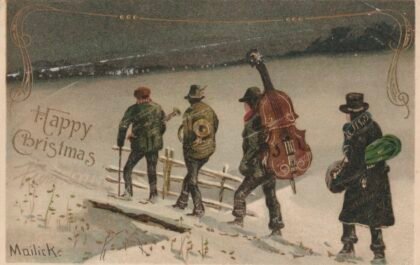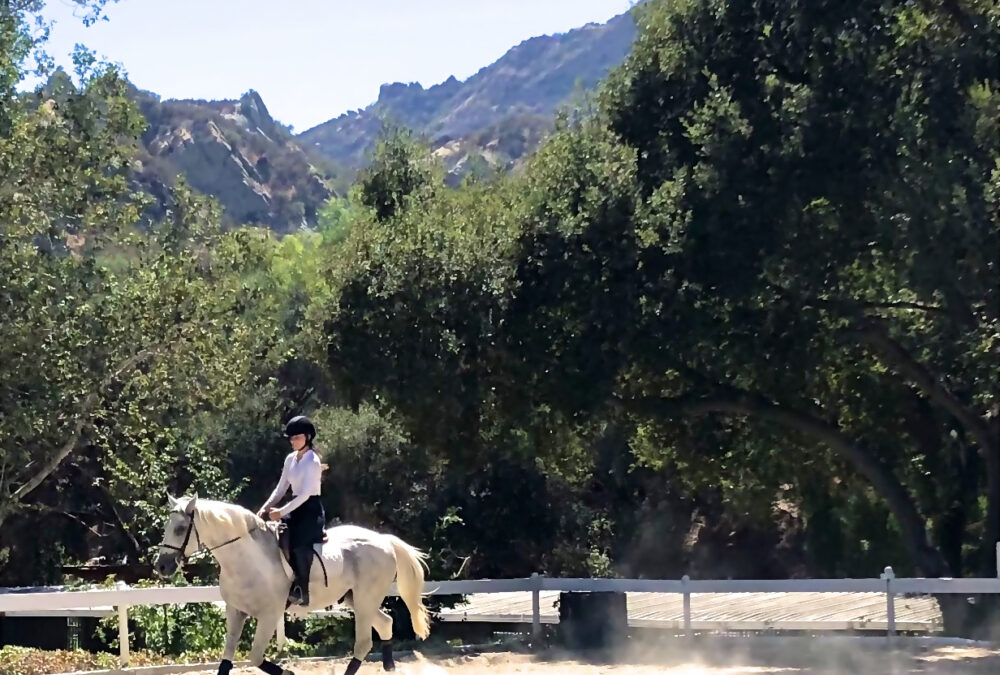
Here she is with Maestro, a Flea-Bitten Grey horse. Photos by Diana Mathur
Horses have heart. They are sensitive and challenging, and considered by many to be the best therapists. Quirky individuals with a herd mentality, horses are powerful animals with the softest of muzzles. Majestic and silly, we can’t stop watching the way they move. You must be centered and present in the company of horses. They force us to live in the moment.
Hippophiles will be glad to know that the Westside Riding School has opened the barn doors of the Mill Creek Equestrian Center, at the familiar 1881 Old Topanga Canyon Boulevard premises. Co-owners Janice Merrihew and Dorte Wolf, the partners who formerly ran the riding concession at Will Rogers State Park in the Palisades, opened Westside Riding School in May. The two women are reviving the upscale equine utopia spread over twenty-eight acres, which has been empty for about a year.
“We’re happy to be here,” says Dorte Wolf, interviewed from her Denmark home. “We’re excited about the new location and want to be part of the community. The property needs a lot of work, but it’s becoming more beautiful with each new horse and rider that come over. If you love horses, and you want to learn to ride, we will guide you through the process.”
“We cater to the needs of a wide variety of riders,” explains Janice Merrihew, who grew up riding in Malibu. “There are still some stalls available, so we’re looking for boarders. You can take lessons here, either on the horse you’re boarding, or on one of our well-trained horses.”
Beginners are welcome at the Westside Riding School, and could range in age from a four-year-old child to her grandmother. An introductory, evaluation lesson is required of every new rider. Often someone has learned to ride, but was not taught the guidelines for safe and knowledgeable riding embraced by the Westside Riding School.
“We have many requests for lessons,” says Merrihew. “Horseback riding, a naturally socially-distanced activity set outdoors, has gained popularity during the pandemic. Folks are eager for solid, old-school training from nice people. We offer ‘no pressure’ teaching. Our goal is not to push you to buy a $30,000 horse and compete at horse shows in a year. Unless that’s what you want to do; then we will support you.”
Lessons are mostly semi-private or three in a group to be sure everybody gets quality instruction.
One of the Westside Riding School’s goals is to turn out well-rounded equestrians. “It’s okay to be focused on learning how to jump, but you also have to learn other aspects of horsemanship— how to muck a stall, lead a horse, groom a horse, understand the equipment and tack, and the etiquette,” says Wolf. “Ninety-nine percent of our parents support that philosophy. Accidents happen less among well-educated riders. Just like driving a car, what are the things you have to watch out for? Learn them, then when you go riding in Mexico or somewhere else, you will know how to be safe.”
Pony Camp is a great way for kids to get started with horses; offered from 9 a.m.—2 p.m. during school breaks throughout the year.
“They learn a lot at Pony Camp,” says Merrihew. “After that, if your kid is excited about horses then they can book lessons. You can plan a birthday party at the stables, and Westside Riding School is happy to work with scout troops.”

Westside Riding School staff includes a Professional Association of Therapeutic Horsemanship (PATH) International trainer offering equine-assisted activities and therapies that use horseback riding as a form of treatment for persons with emotional and physical special needs and learning disabilities.
A hunter-jumper program (also known as show jumping) will be moving into one of the barns. Westside Riding School is looking forward to adding a trainer dedicated to dressage, precise exhibition maneuvers by the horse directed by barely perceptible cues from the rider. Western riders are welcome, but the majority of riders at Westside Riding School favor the English saddle and equitation.
The prices here are in line with the general cost of horseback riding. If this is the sport for you, you will need to invest in boots and a helmet. Personal gear is no longer lent out due to concerns over coronavirus.
“We support all riders,” says Janice Merrihew. “Our staff are capable of taking a rider from beginner to advanced. Whether a novice or somebody competing at high levels of dressage, both are at home here. We’re excited about filling all the stalls. But more important is creating the right balance and vibe of people—so we’re particular.”
Dorte Wolf agrees. “We are looking for people with great energy to help create a good atmosphere at the barn. We don’t need drama and negativity. Competitive riders are welcome—as long as they’re not competitive against each other at the barn. We’re all in this together. Safety, nice people, excellent horsemanship, these are more important than bringing home a lot of trophies.”





